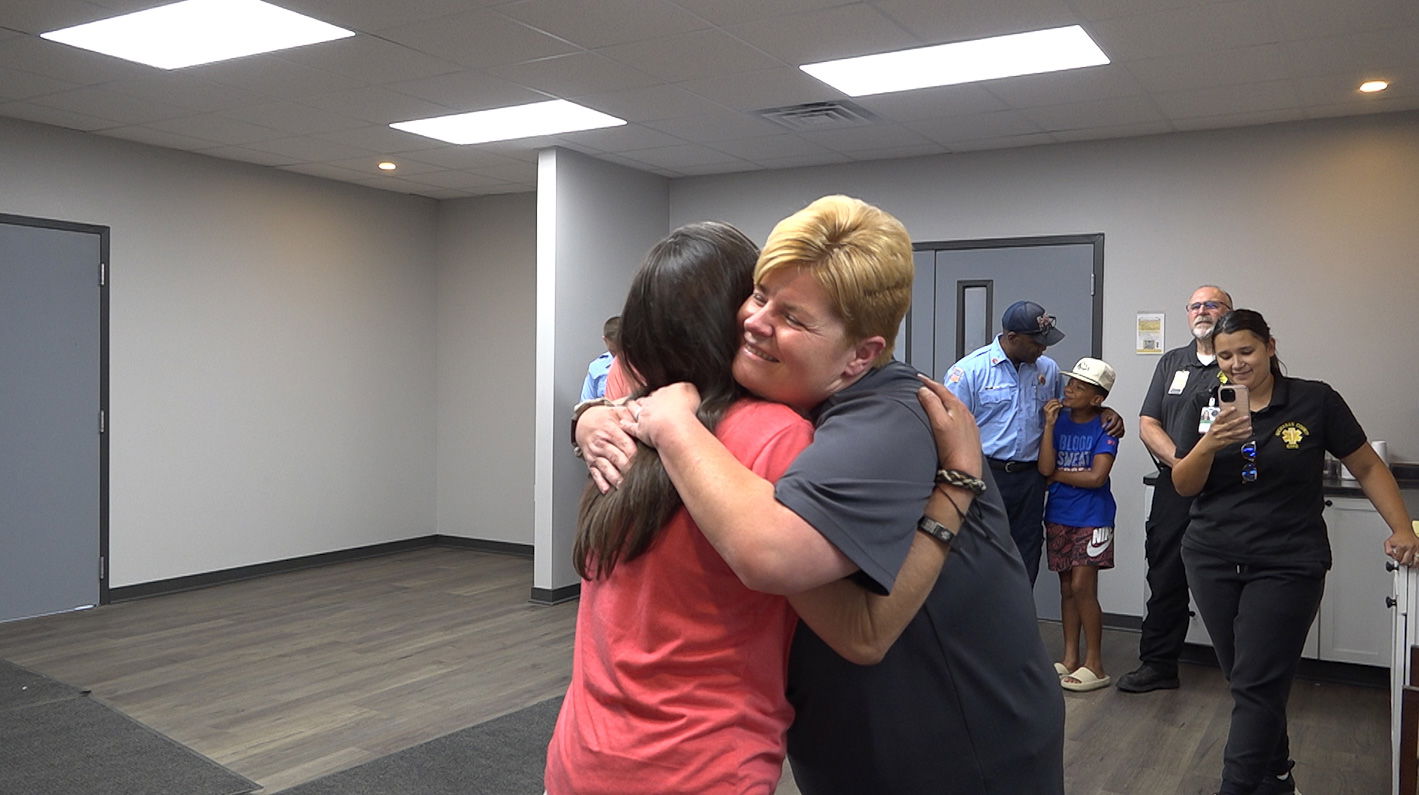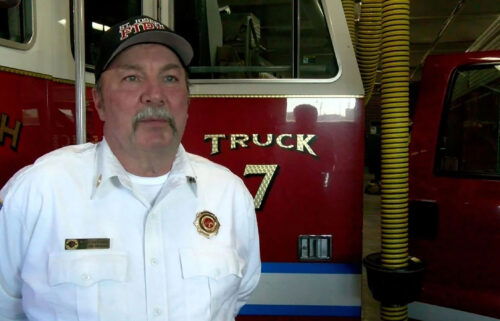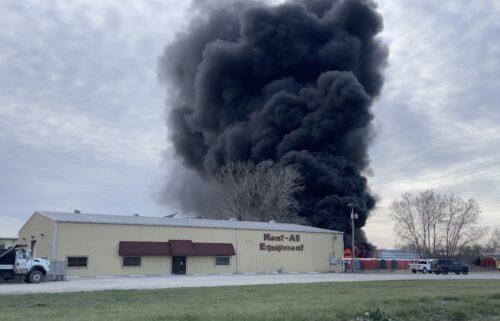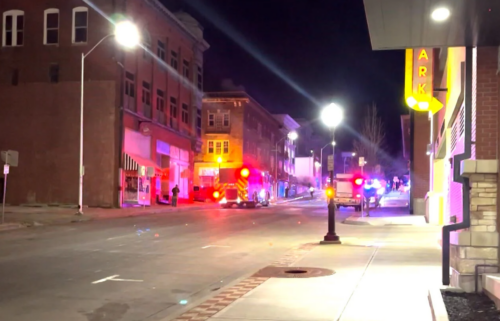St. Joseph woman reunites with first responders who saved her life

By Jenna Wilson
Buchanan County EMS and fire crews got the chance to reunite with a woman whose life they saved after she experienced a cardiac arrest while at work.
During a regular work shift on April 15, St. Joseph resident April Shepherd stumbled and fell onto the ground.
After seeing her fall, her coworkers rushed over to help when they noticed she had no pulse and immediately called ambulance crews for assistance.
“They said that she had collapsed on the ground and wasn’t breathing,” said Becky Frazier, a Buchanan County dispatcher who took the call. “Which initially, when we hear something like that, we immediately go in and start instructing them how to do CPR.”
Fire crews arrived at the scene minutes after and continued performing CPR while hooking her up to an automated external defibrillator until ambulances arrived.
“Whenever we did our pulse check, she had no pulses,” said Capt. Mikey May with the St. Joseph Fire Department. “We were on the Belt Highway, maybe in the ambulance for five minutes before we felt pulses. And by the time we turned on the Faraon, she was starting to breathe against the Ambu bag, so she was starting to breathe on her own. When we got her to the emergency room she was really fighting the Ambu bag and that point, she had her own heart rate that was sufficient and she was breathing on her own.”
What happened to Shepherd was quite rare, but a risk factor for anyone taking certain medications. The dosage of medication she was prescribed caused her two rhythms to hit at the same time.
“There are some medicines that we call a QT elongation,” May said. “Hers just got elongated enough that her rhythms hit at the same time causing ventricular fibrillation, and that’s what sent her into her lethal rhythm.”
Shepherd met with the crews who saved her earlier this week. While grateful, several family members were still in shock and weren’t quite ready to express their emotions to the media, but Shepherd stood in the room with her husband and relatives, smiling and talking to the crews who were on scene that night, overwhelmed with emotion and happy to be alive.
“I can’t thank all of you enough, without you all, she wouldn’t be here watching me raise my kids,” said Shepherd’s brother, Richard Cronley, standing next to his toddler and wife.
“That’s the reason that we kind of do this, you know, it’s very rare to have a situation like this where the person successfully comes back from cardiac arrest,” Frazier said. “But that’s always the hope and as long as the person on the phone is cooperating, listening and doing what is being instructed to do, until the responders can get there and take over, then, then we’ve done our job.”
Statistically, less than 8% of out-of-hospital cardiac arrest patients survive to the point of hospital discharge. May said receiving news that the patient wanted to meet with crews and show her appreciation was heartwarming for them.
“A lot of times, because of the HIPAA laws, we can’t follow patients like we used to be able to,” he said. “You take a patient into the emergency room, drop them off and you have no idea whether they survive or didn’t. Sadly, you read the obituaries or you ask, you never really know what happened. So, the fact that she came back and wanted to meet us means a lot because it reaffirms why we do what we do.”
Emergency crews are using this situation to remind the community about the importance of knowing the fundamentals of CPR, because without the assistance of her coworkers performing CPR when she became unresponsive, her condition may have been worse, they said.
“Please everyone, if you get the opportunity, take a CPR class because the earlier you can begin CPR on someone, we can have more outcomes like hers,” May said.




